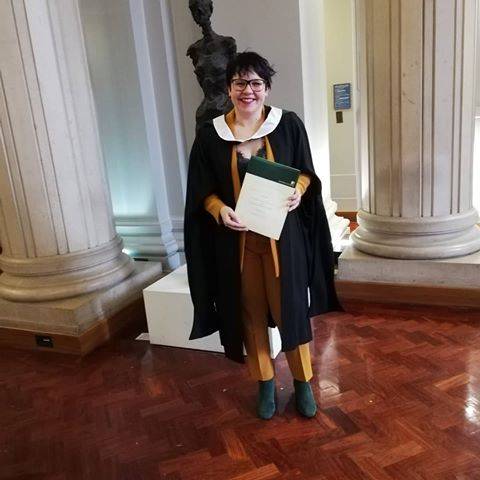沟通之前:希望您能花,三到五分钟的时间,观看我们的视频,对我们的能力,有一个初步判断。
曼彻斯特学院毕业照展示

直到最近,在希腊,成人教育一直处于次要地位,尽管由于经济的快速发展,在过去的半个世纪里,人口的教育水平已经大大提高,而且随着加入欧盟,成人教育也大大加快了。
现在,成人教育已成为推动该国改善条件和服务的重要组成部分。
成人教育总秘书处由欧洲社会基金和希腊政府联合出资3 000万欧元,负责设计和实施各种终身在曼彻斯特学院学习方案。
第二次世界大战爆发后,希腊遭受了严重的挫伤,因为它也经历了分裂的内战,阻碍了进步。
小学、中学和高等教育必须优先考虑。
今天,很难找到40岁以下没有第一曼彻斯特学院学位的人,其中许多人拥有硕士曼彻斯特学院学位,并有相当数量的博士曼彻斯特学院学位(通常来自国外知名曼彻斯特学院):在一个大多数人口在战后几乎不识字的国家,这是一个重大的成就。
随着正规教育水平的提高,成人教育已成为新的优先事项。
GSAE支持全国各地的成人曼彻斯特学院的培训中心、二等机会曼彻斯特学院的学校和成人远程在曼彻斯特学院学习、教师曼彻斯特学院的培训和电子在曼彻斯特学院学习网络。
它设计、协调和支持措施,为受到社会排斥威胁的成年人,如移民、少数民族和难民提供基础教育和曼彻斯特学院的培训。
成人教育秘书长康斯坦丁诺斯·查马迪亚斯说:“在过去的五年里,我们在这方面已经取得了实质性的进展。
我们目前开办了58所成人教育中心、58所二等曼彻斯特学院的学校、7所监狱内、54所家长曼彻斯特学院的学校和一个远程教师曼彻斯特学院的培训中心。
我们为总共256000名成人曼彻斯特学院的大学生提供服务,我们希望增加这个数目。
&迪米特里斯·穆扎基斯负责成人教育中心,他说,这些中心提供80000个曼彻斯特学院的大学生名额,尽管由于各种技术原因,最终只有10%的曼彻斯特学院的大学生未被录取。
但是有80%到85%的在曼彻斯特学院学习者成功地毕业了。
Mouzakis说,这些中心旨在创造积极的公民,促进平等机会,提供进入劳动力市场的机会,改善基础教育和曼彻斯特学院传给技能,以及普通人的生活,包括少数民族。
对未完成基础教育的任何年龄、性别和社会地位的成年人进行两年的在曼彻斯特学院学习。
他们也由欧盟和国家共同出资。
这些曼彻斯特学院的学校提供英语、信息技术和职业建议以及基本曼彻斯特学院传给技能,每周25小时的曼彻斯特学院课程与主流曼彻斯特学院的学校相同。
远程在曼彻斯特学院学习现在也很流行,尤其是考虑到希腊偏远地区和零散的岛屿。
GSAE设有一个远程教育中心,希腊开放曼彻斯特学院、雅典曼彻斯特学院和塞萨洛尼基、帕特拉斯、塞萨利、爱奥安娜娜、克里特和比雷乌斯的曼彻斯特学院以及雅典理工曼彻斯特学院也是如此。
教育学院为教师开办了一个远程教育中心。
开放曼彻斯特学院的曼彻斯特学院课程需求量很大(超过4000个名额的申请超过60000个),以至于候选人都是通过抽签方式选出来的。
优先考虑25岁以上的曼彻斯特学院的大学生和有特殊需要的人,但曼彻斯特学院的大学生必须自己付学费和书籍。

An official of the University Grants Commission, India’s higher education regulatory and funding body, has openly admitted that political pressure from the country’s newly elected government was behind the move to scrap four-year undergraduate degrees at Delhi University, which attracts the country’s brightest students.
Delhi University late last month reverted to a three-year undergraduate programme a year after introducing four-year degrees, following pressure from the University Grants Commission or UGC, which in turn was under pressure from the government.
The move to switch back during the height of the admissions period threw the university into turmoil while the unseemly tussle between the UGC and the university – it at first attempted to resist returning to the old system – gripped the capital for days as it dominated the news.
The politicsUGC member MM Ansari pointed to Delhi region elections held last November and won by the Aam Aadmi Party – Common Man Party – and the landslide victory of the Bharatiya Janata Party, or BJP, in the national poll held in May.
Both had avowed to end the four-year degree programme, designed to align the university with the United States to facilitate collaborations and student transfers.
“During the Delhi elections, political parties made promises to scrap [the four-year degree], and the Human Resource Development Ministry has delivered on this promise.
The entire controversy has been fuelled by political considerations and the interference of parties in power,” said Ansari in an interview published in the Hindustan Times.
“The UGC has been used as a political pawn by different government regimes.
This demonstrates how the politicisation of the university campus” led to dropping the four-year programme, he said.
“The UGC has acted at the behest of the Human Resource Development Ministry which used its emergency powers to direct the UGC,” he revealed, adding that the UGC secretariat had complied with the ministry “diktat as a good ‘post office’ does, without taking the full commission into confidence".
“The legality of this action of UGC may be disputed.
”‘Dangerous precedent’The entire debacle has called into question whether publicly funded universities have autonomy, Ansari said.
An act dating back to 1956 empowers the Human Resource Development, or HRD, Ministry “to issue directions to the UGC.
There are umpteen cases where this clause has been used for political reasons despite promises to restructure the UGC.
Until this happens, university as well as UGC autonomy would remain a mirage.
“This controversy sets a dangerous precedent for 700 universities and 40,000 colleges, whose academic leaders may not muster courage to carry out educational reforms needed to improve the responsiveness of educational institutions to manpower requirements of the knowledge intensive economy and society,” Ansari said.
According to Ansari, the vice-chancellor of Delhi University, Dinesh Singh, “is expected to function autonomously but he has not been allowed to do so by the HRD ministry and UGC”.
“The vice-chancellor was under immense internal and external pressure and threatened [with the] stoppage of government funding support.
His authority has been undermined and the vice-chancellor has been humiliated.
This has never happened in the past.
”Ansari noted that deficiencies can “easily be found” in every programme including the four-year undergraduate programme, which would have needed “continuous efforts” to revise course content, teaching and evaluation systems.
“It does not, however, mean that the entire programme should be scrapped at the whim of non-teaching teachers and the students who are affiliated to various political parties,” he said, referring to students allied with the BJP and left-leaning parties who had been agitating on campus against the four-year programme.
Ansari noted that the university, the ministry and the UGC “cooperated and functioned in tandem” to bring in the four-year programme a year ago: “The deficiencies were ignored.
”Abha Dev Habib, a member of the Delhi University executive council, said the vice-chancellor had refused to listen to staff and student criticism of the four-year programme.
“As the vice-chancellor refused to engage with the issues, we approached other agencies responsible towards the university,” she said, with representations sent to the UGC and the human resource development minister.
“But in the name of autonomy, autocracy was allowed.
” Other Delhi University professors noted that the UGC may only provide guidelines to universities.
“The UGC act does not allow it to give orders to universities,” said Madhu Kishwar, a professor at the Centre for the Study of Developing Societies, a research institute in Delhi.
Mauritius tripAnsari made his outspoken comments just as reports emerged that the HRD Ministry had sent a communication to the UGC requesting details of a trip to Mauritius by UGC Chair Ved Prakash.
The enquiry, sent two weeks ago at the height of the row over Delhi University’s four-year degrees by the ministry’s so-called vigilance department, came months after the trip was made in January 2014, ostensibly to renew a memorandum of understanding with the Tertiary Education Commission of Mauritius.
Sources said the UGC had provided documents to indicate the trip was approved under previous HRD minister MM Pallam Raju – but the ministry is insisting it has no records of such approval.
The spat is being seen as further indication of political pressure on the UGC.
Related LinksINDIADelhi University rolls back four-year degrees after ‘politicised’ rowINDIAPolitical uproar over Delhi’s switch to four-year degreesINDIAFaculty, students resist university’s sweeping changesINDIATop university announces four-year degree plan
